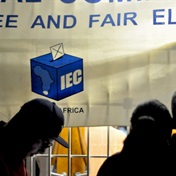
May 1 marked the latest iteration of Workers’ Day, a yearly public holiday in South Africa.
Although many people took a deserved break from work for the day, countless others still went in to work, trying to eke out as much money as they can earn, given yet another increase in the petrol price and the continued weakening of the rand.
Many employed people could enjoy the day off on Wednesday, but nearly 10 million South Africans are unable to go to work on any day of the year.
The reason? They are unemployed.
For all their efforts to find work, they are restricted because of onerous labour regulations; the latest and most devastating of which is the national minimum wage.
The national minimum wage artificially raises the price of an employee’s labour.
This means that companies have to either hire fewer people, or cut back the hours of the people they employ, otherwise they will be unable to pay the bills every month.
For all the caricatures of greedy businessmen, the reality is simply that they must make some sort of profit to keep the business running month to month, year on year. They cannot conjure money from thin air.
By introducing the national minimum wage, the government has added yet another barrier to businesses employing more people and thus we will see more and more people joining the nearly 10 million unemployed.
The national minimum wage is arbitrary. It is not tied to reality, to the price which an employee and employer would agree to without government interference.
The monthly national minimum wage is currently set at R3500. Why did they decide on such a low number? Why not R50 000 a month?
Because those who enacted this law know that they can only mess with the market and business up to a point.
If the supporters of the national minimum wage advocated for their law from a position of concern, they were misguided. Their ostensible concern blinded them to the devastating consequences of their law.
Because of it, people will not be employed.
The myriad laws and regulations in South Africa mean that it is exceedingly difficult for employers to grow their businesses, and to hire more people.
Poor South Africans, the vast majority of whom are black, are unable to better their lives because they are excluded from work by laws and regulations.
The advent of democracy in 1994 was meant to secure individual freedom for each person.
Instead, vested interests in politics and unions protect their own interests by advocating for laws such as the national minimum wage, at the cost of those who are not lucky enough to be part of the political class.
Many people are thus not free as individuals to find work and to improve their lives.
The national minimum wage, along with other “protective” regulations, assumes that the government must protect workers from the actions of employers.
This view completely removes the dignity and agency of each individual worker; that people can decide for themselves what work they want to do, and on what terms they will agree to work for a certain company.
Unemployment and destitution is a devastating, debilitating situation to be in. To place any barrier between a potential employee and employer is cruel and indicates the victory of an ideology, statism, over people’s harsh realities.
The national minimum wage also completely ignores the rules of economics.
It is an interference by the government in the system of supply and demand, where the price of labour is artificially inflated, thus affecting the supply of labour.
Artificial increases in the price negatively affects the demand for labour and results in the inability of businesses to determine what the true cost of labour is, and whether a business can take on more employees.
By increasing the number of laws and regulations involved in labour relations, the government forces people to live lives of begging, depending on relatives, stealing, prostitution or grovelling in rubbish bins and garbage heaps.
This is the reality for many people in South Africa, forced into a desperate situation by laws such as the national minimum wage.
Chris Hattingh is a researcher at the Free Market Foundation. He has an MPhil in business ethics from Stellenbosch University. He is the author of published articles on consumer rights, economic freedom, inequality and individual freedom.




 Publications
Publications
 Partners
Partners








